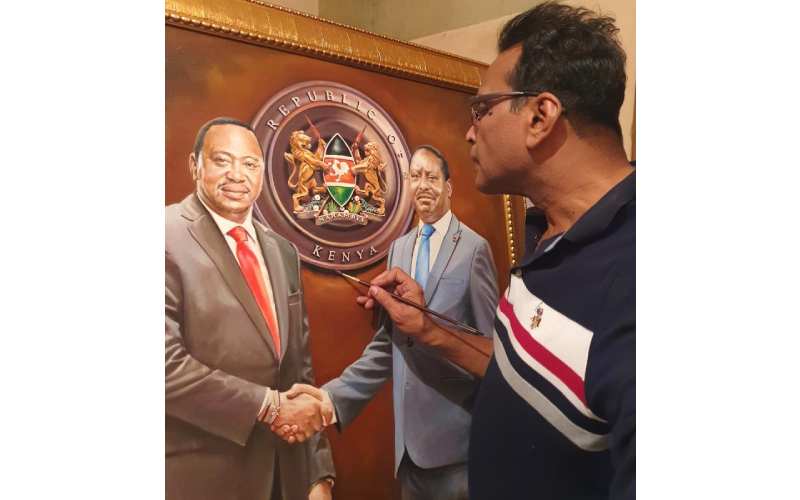
Coast-based artist Zuber Bakrani make final touches to a painting of the golden handshake between President Uhuru Kenyatta and ODM leader Raila Odinga. [Gideon Maundu, Standard]
There is a likelihood that we might have yet another handshake after the 2022 election. Why? Because political handshakes have proved to be the axis of peace following divisive elections! But even in the absence of divisions, post-election handshakes are good prescriptions that should be taken with the meticulousness of an antibiotic by future regimes.